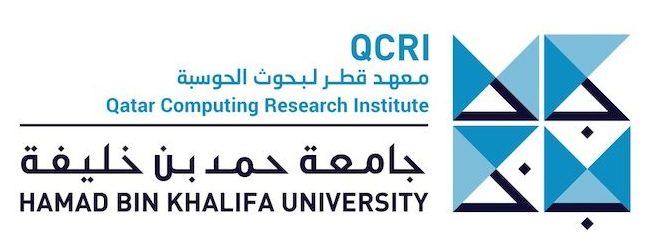ARTIFICIAL INTELLIGENCE IN QATAR
We now stand at the cusp of a major transformation in human technological advancement. Artificial Intelligence (AI), the grist of many science fiction mills, is fast becoming a reality. AI will usher in a brave new world where autonomous agents will begin to share the world with humans1. These agents will learn by interacting with the environment and begin to operate independently. Robots are the most visible form of autonomous agents, but AI is much more than robotics. Modern AI applications are enabled by computer programs, fueled by Big Data and executed on massive computing infrastructure. Contemporary societies, including Qatar, are already reaping the fruits of advancements in AI. From digital AI assistants, personalized recommendations from shopping websites, smart map navigation to machine-driven language translation services, AI is steadily permeating into our daily lives.
Embracing AI
Qatar is a prosperous country endowed with rich natural resources and its inhabitants have fully embraced AI technology. More than 94% of the Qatari population use the Internet, one of the highest rates in the world, and thus have access to many AI applications 2. However fundamental questions emerge as AI-based decision-making systems begin replacing humans in crucial areas. Is it ethical to let an autonomous agent decide who should get a scarce organ transplant? Who should be held liable if a self-driving car is involved in a fatal accident? Should artificial sentient beings be given legal protection? Modern AI is powered by data and societies are grappling to understand the “weaponization” of data. In fact the blockade of June 5th 2017 was catalyzed by a “data attack” on Qatar’s information infrastructure. Where should governments draw the line between the benefits of AI, privacy and the usage of data? The reliance of Qatar on a migrant labor force is likely to decrease as AI systems proliferate 3. Will the fall in population have a positive or negative impact on Qatar’s economy?
Shaping the Future of AI
The Qatar government’s long-term objectives are embodied in the Qatar National Vision (QNV) 2030 development plan. Organized around four pillars: economic, social, human and environmental, the QNV lays down a thoughtful pathway for developing the country. AI can serve as a powerful technological enabler for all the pillars. For example, the economic pillar calls for the development of a “knowledge-based economy.” By investing in AI education and homegrown AI solutions, the effort to build the economy based on knowledge capital can be accelerated. Similarly developing an endogenous AI-based technology for promoting transportation efficiency can help reduce pollution and foster an environment-friendly development 4. The industrial revolution completely changed the global balance of power and a select group of countries (where the industrial revolution began) enjoyed complete political, economic and geographic domination for over three hundred years. In 1700, China and India accounted for 45% of the world’s GDP. Lack of technological innovation and the loss of political autonomy due to imperialism reduced it to 5% by 1950 A similar fate will be faced by societies who miss the AI revolution. It is imperative that Qatar not only be a consumer of AI but take steps to influence the evolution of AI technology.
1. While data-driven AI has made a lot of progress there is not unanimous agreement about when (and not if) autonomous agents will become a reality. See Prof. Rodney Brooks for a view which is skeptical of the current hype in AI.
2. World Bank (2016)
3. QCRI developed an AI-based transcription service which was deployed at an international media outlet. This led to massive efficiencies and reduction in personnel who were carrying out the task manually.
4. https://infogram.com/share-of-world-gdp-throughout-history-1gjk92e6yjwqm16
